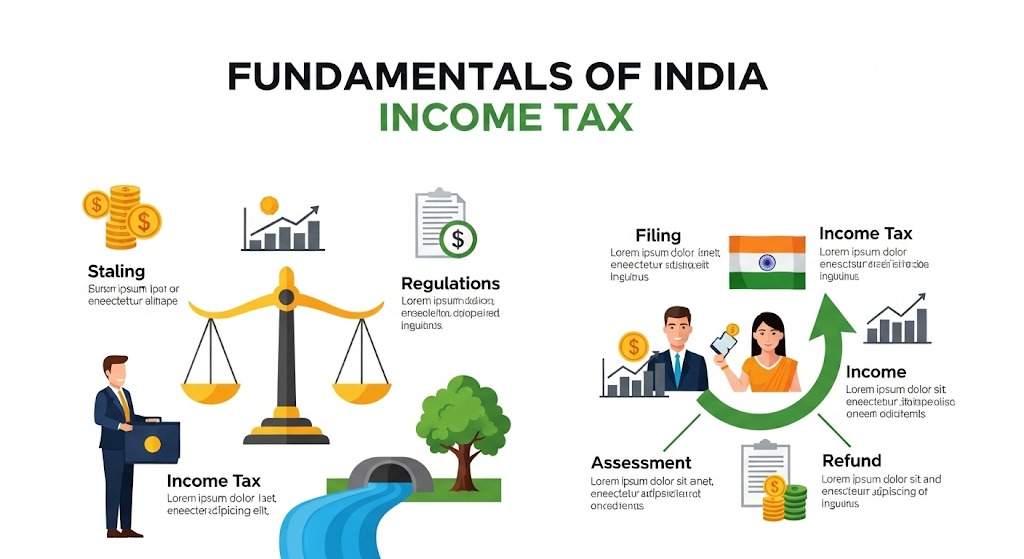

Income tax is an obligatory tax which is charged on the annual income of an individual or an entity earned in a financial year. It is classified as a direct tax as the liability is borne directly by the taxpayer and cannot be shifted, unlike indirect taxes. The government uses this tax to finance public services, infrastructure and other governmental functions. It is a progressive tax, i.e., rate of tax increases with an increase in assessee’s income. As per Entry 82 of the Seventh Schedule of the Indian Constitution, Parliament has exclusive power to make laws on taxes on Income other than agricultural income[1]. This grants the Central government an absolute power on imposing income tax across the nation.
In India, the Income Tax law comprises of The Income Tax Act 1961, Income Tax Rules 1962, Notifications and Circulars issued by Central Board of Direct Taxes (CBDT), Annual Finance Acts and Judicial pronouncements by Supreme Court and High Courts[2]. The levy is governed by the statute Income-Tax Act, 1961, which is the primary law governing collection, computation and administration of Income-Tax in India[3]. The act lays down rules and regulations, responsibility of taxpayers and powers of Income Tax authorities.
Together, this integrated statutory and regulatory framework empowers the government to systematically govern income-tax administration—from income computation, return filing, and tax collection to recovery, appeals, and reforms—while upholding principles of fairness and compliance vital to the nation’s fiscal health.
Sources of Income Tax:
1) Income from Salary
2) Income from House Property
3) Income from Profits and Gains of Business or Profession
4) Income from Capital Gains
5) Income from other sources